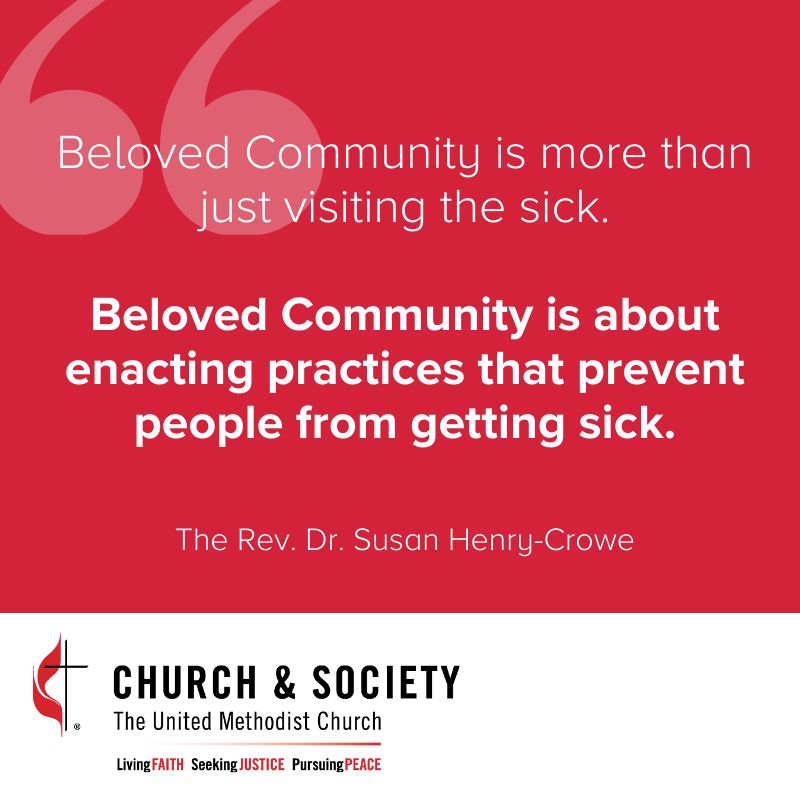Caring for our neighbors in COVID-19
Building beloved community in a moment of social distancing.

Each day, we face new information about how the coronavirus pandemic grows as a public health emergency. As more institutions adopt social distancing, this moment of uncertainty tests our bonds as a community. This moment calls for us to reflect on our role to care for our most vulnerable neighbors.
As I read updates on how United Methodists across the connection are adjusting to the COVID-19 pandemic, I am grateful for the leadership of churches, conferences and agencies to teach hygiene and develop resources to continue worship together. Agencies, like Church and Society, are adopting policies of social distancing in order to care for the common good.
And while I am saddened that I won’t be able to share remarks at the United Methodist Association of Communicators annual meeting next week, I am also grateful for the wisdom UMAC showed in postponing their annual meeting out of concern for our health.
Amid these wise and prudent actions our church and leaders are showing, I am also worried about how this pandemic will affect those who are most vulnerable among us. I think of low-wage workers who can’t afford to lose a paycheck or the elderly who are more susceptible to the virus. What does it look like in this moment to stand in solidarity with them? How can we raise our voices as advocates for their needs? How can we remain in community when we are forced to keep social distance?
It is in moments like these that I am reminded of the concept of Beloved Community.
First introduced by the theologian Josiah Royce, the idea of Beloved Community was popularized by the Rev. Dr. Martin Luther King, Jr. The King Center in Atlanta describes beloved community as:
Dr. King’s Beloved Community is a global vision, in which all people can share in the wealth of the earth. In the Beloved Community, poverty, hunger and homelessness will not be tolerated because international standards of human decency will not allow it. Racism and all forms of discrimination, bigotry and prejudice will be replaced by an all-inclusive spirit of sisterhood and brotherhood. In the Beloved Community, international disputes will be resolved by peaceful conflict-resolution and reconciliation of adversaries, instead of military power. Love and trust will triumph over fear and hatred. Peace with justice will prevail over war and military conflict.
Building beloved community starts with how we care for the most vulnerable.
Beloved community is more than just visiting the sick; it is about enacting practices that prevent people from getting sick.
Beloved community is more than payroll tax breaks; it’s about ensuring that we don’t trap people in cycles of poverty.
Beloved community means understanding that our neighbors aren’t just in the people in the pews; they are in Wuhan, Washington state, and Italy.
Now, more than ever, we need to work to create beloved community.